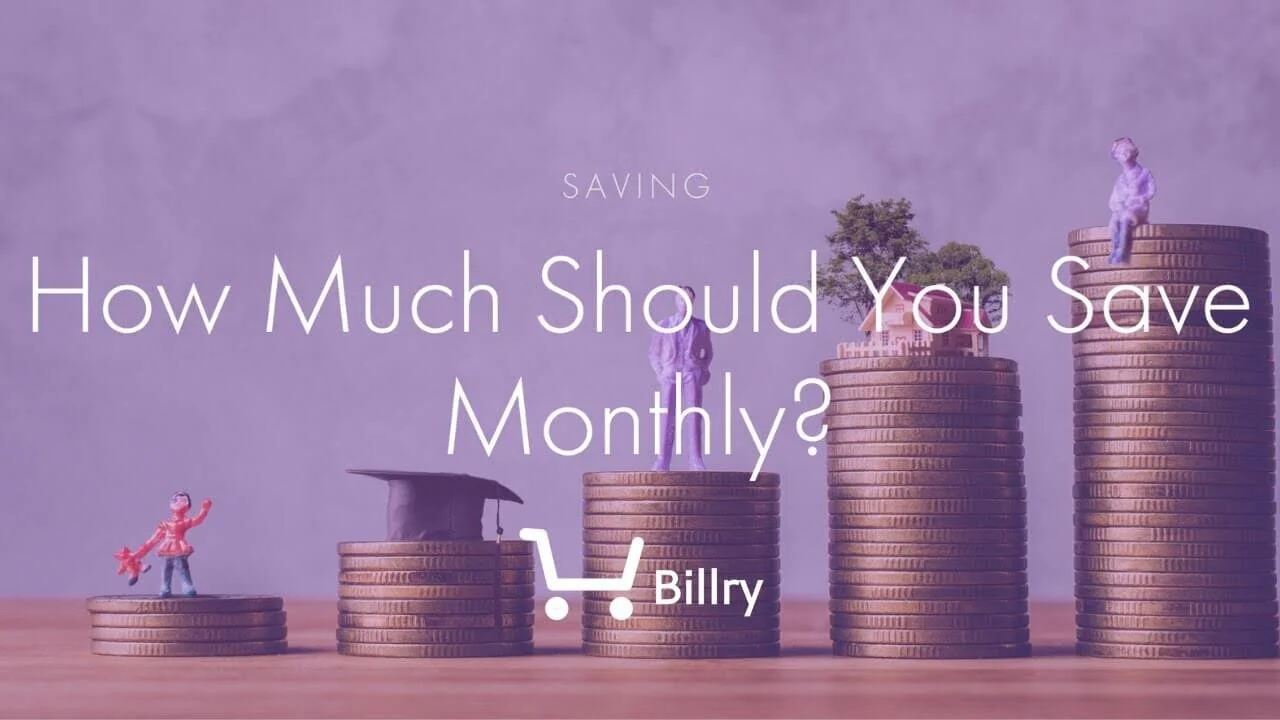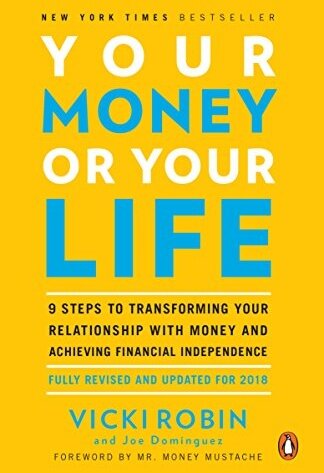Top 7 Best Books on How to Save Money
Saving money is something just about anybody wants and needs to do to improve their life. However, it's not always easy to know where to start. The financial world is a complex and confusing one filled with many different elements. People who stumble into it without a just a bit of preparation are likely to find themselves losing and not saving money, and struggling to get by as a result.
Thankfully, a myriad of different books can help you with this situation. We compiled seven of the best books on saving money that we could find. We carefully researched each option and will provide a brief write-up about each below. You'll also learn questions that you should ask yourself when choosing one of these books and how we at Goalry can help you improve your financial health.
The List Of 7 Best Books On Saving Money
We broke down our list based on a few different factors. First, we came up with a category for each book that should make them easier to choose. For instance, is the book better for investors or everyday people? Should you read it if you have a job or are looking for one? Second, we included the list here to make it easier to research your options before you read. They include:
Best Book for Financial Planning: The Total Money Makeover: A Proven Plan for Financial Fitness, by Dave Ramsey
Best Book for Millennials: Broke Millennial: Stop Scraping By and Get Your Financial Life Together, by Erin Lowry
Best Book for Women: Secrets of Six-Figure Women: Surprising Strategies to Up Your Earnings and Change Your Life, by Barbara Stanny
Best Books for Positive Thinking: The Millionaire Next Door: The Surprising Secrets of America’s Wealthy, by Thomas J. Stanley & William D. Danko
Best Book for Setting Goals: Your Money or Your Life: 9 Steps to Transforming Your Relationship with Money and Achieving Financial Independence, by Vicki Robin & Joe Dominguez
Best Book About Spending Psychology: Nudge: Improving Decisions About Health, Wealth, and Happiness, by Richard H. Thaler & Cass R. Sunstein
Best Book for Quick Success: Set for Life: Dominate Life, Money, and the American Dream, by Scott Trench
Now that you've taken a look at these titles and gotten a basic idea of what they may offer, it is important to jump right in and take an in-depth look at them. Each covers multiple topics and provides insights into saving that you might not expect. Thankfully, each is relatively easy to read, includes graphs and detailed photos, and other data that may make them easier to use. We tried to take these extra elements into account when choosing books. Doing so helps to make this process easier for you. You're welcome in advance.
A Look At Each Financial Book: The Reviews
In each section below, we'll take a look at the book in question and give you a better understanding of who might enjoy it. We'll also provide an in-depth analysis of their overall methods and message. In this way, you can more easily choose the book that makes sense for your needs. Just as importantly, you can start saving money right away by not buying a book that you won't end up using. Isn't that a clever way to get started with these reviews? We like to think so!
The Total Money Makeover: A Proven Plan for Financial Fitness, by Dave Ramsey
Financial planning is a big part of saving money. After all, if you can turn your cash into savings and invest it successfully, you can get out of debt more quickly. This book, by Dave Ramsey, can help you set up for emergencies and even retirement. Ramsey has a long-time financial radio show that is acclaimed for its no-nonsense and practical advice. His book follows a similar approach.
Ramsey's process is outlined here in what he calls the “seven baby steps” of saving. One of the most significant elements of this book is its emphasis on agency and personal accountability. Ramsey believes that everybody can succeed and fail based on their merits. So it works great as a guide for those struggling to get their life started after a minor series of problematic failures that would otherwise derail your life permanently.
Broke Millennial: Stop Scraping By and Get Your Financial Life Together, by Erin Lowry
Millennials often get a bad rap from those of older generations. Given a challenging situation (i.e., inheriting a world with a lot of financial troubles), millennials have learned to get by using various skills. However, if you're a 20-30 something that's having a hard time with student loan debt or bad personal financing decisions, this book will help dig you out of debt in many ways.
Written by Erin Lowry, this book takes a real-world look at issues that genuinely affect millennials. For example, do you have to pay rent to stay with your parents? This book has a chapter dedicated to it. Are you afraid you'll never retire? There's a chapter here to help. We find this book is an excellent guide for millennials who are just finishing college and who may need a little bit of help getting back on the right financial path.
Secrets of Six-Figure Women: Surprising Strategies to Up Your Earnings and Change Your Life, by Barbara Stanny
Women unmistakably have a more challenging time in the financial world due to still-lingering sexist ideas. Thankfully, many high-quality books were written to help tackle this problem head-on. Barbara Stanny's illuminating book helps break down unique strategies that help save you money and increase your earnings as a woman. They focus on independence and financial strength as a woman.
Throughout this book, you'll learn about various corner-cutting methods, various types of skills that help improve your earnings, and a higher level of strength and independence. The underlying goal is to give women who may feel overpowered or ignored in their life the chance to save money and improve their finances at the same time. It's a very liberating and rewarding read.
The Millionaire Next Door: The Surprising Secrets of America’s Wealthy, by Thomas J. Stanley & William D. Danko
Have you ever heard of the millionaire mindset? This idea centers around the concept that millionaires or other high earners simply think differently than other people. As a result, they know how to save money and spend it properly. In this unique book, you'll learn about seven different traits shared among the wealthy, including avoiding excessive spending and minimizing unnecessary costs.
We love this book because it gives practical advice that can help to change your mindset. For example, before reading, we didn't understand how many millionaires drove simple cars and lived in simple homes. They don't lavish money on things that don't matter but spend it on personal improvement. The saving tips here may not make you a millionaire overnight, but they can teach you many lessons.
Your Money or Your Life: 9 Steps to Transforming Your Relationship with Money and Achieving Financial Independence, by Vicki Robin & Joe Dominguez
Improving your financial situation requires a strong mind and the ability to set clear goals. Unfortunately, not many people have these skills, which is why this book is so high on our list. It teaches you how to set financial goals and gives you nine steps that make this process easier. Each section breaks down a different stage to provide you with a comprehensive understanding of how it works.
The biggest takeaway you'll learn from this book is understanding why you invest in things. You'll learn how to evaluate your investment opportunities and which you should choose. In this way, you can minimize potential investment makes. Even better, you can save money by utilizing the frugal-living tips outlined throughout the book. Nobody saved their way to fortune: but you can use your savings to transform your life.
Nudge: Improving Decisions About Health, Wealth, and Happiness, by Richard H. Thaler & Cass R. Sunstein
Did you know that people who spend a lot of money may have an addiction to spending? This is because their body and mind feel a great sense of reward when they buy things, causing them to fall into a spiral of excessive purchasing. Thankfully, you can learn more about this problem and how to create a better financial future by reading through this in-depth book and understanding its deeper meanings.
You'll learn more about how behavioral and emotional beliefs often influence our spending. For instance, you'll understand why some people always buyer higher-priced items if they are only marginally better than less expensive options. But, importantly, you'll also learn how to avoid these destructive behaviors.
Set for Life: Dominate Life, Money, and the American Dream, by Scott Trench
Do you want to stay out of debt and improve your life as quickly as possible? This comprehensive book may be an interesting option. Written by someone with proven success, “Set for Life” is designed to produce quick results. Whether it does will vary for each person, of course. Its tips are centered around figuring out your values and understanding what you want to do with your time and money.
Trench states that the American Dream may not be suitable for everybody. For example, you may save money on not buying a house and, instead, travel and work wherever you go. Or you might simply buy a small house and scooters or bikes to get around instead of purchasing the biggest cars. He also emphasizes focusing on the bigger picture and pursuing your dreams using a handful of simple steps.
FAQ About Finding Great Finance Books
Make sure that you research the career of each writer before you invest in one of their books. For example, what kind of experience do they have in finance? Have they written about finances before? Do their tips seem sort of basic, or do they have more depth to them? These facts are crucial.
The finances market is so huge that many fly-by-night writers try to tap into it with books that contain questionable ideas and flaky concepts. Some may even give bad advice that runs counter to common sense. So pay attention to these factors and make sure that you research these options carefully.
Take a look through the book quickly and see how many footnotes and resources each writer uses. Do they have extensive footnotes with many quotes? Is their resource list long and detailed? More importantly, is the resource list made up of only high-quality information and sources?
Note that great resources don't necessarily mean the book provides high-quality information. The writer may ultimately have little to add to each of these sources. However, a great list of reading material like this does increase the chance that your book is of the highest quality.
When reading a financial book, it is essential to pay attention to things like unreasonable claims, unlikely ideas, or promises of high payout. Any book that claims it can save you thousands or make you millions is making promises that 300-400 pages are not likely to keep. It's also a good idea to steer clear if you read anything about the writer that concerns you. For example, if some of their information seems almost like a Ponzi scheme, you should probably not take their advice. Financial investment books may be a prime source for questionable and unethical advice.
Any book that claims that it can guarantee financial success is questionable. There's no real way of ensuring that these methods will work. While simple steps like cutting back on expenditures will obviously save you money, other, more complex ideas have an inherent risk of failure.
That said, they also have a potential for success, or they wouldn't be worth trying. We just believe it's dangerous for any financial institution to “guarantee” success for its customers. This is usually the sign of a questionable firm that's trying to attract you with promises that they may not meet.
How We Can Help
If you are interested in saving money or improving your personal finances, you need to work with us at Goalry. Our easy-to-use app lets you seek out different lenders and finance sources that may make it easier for you to save cash. You can set up a profile, create unique search parameters, and use our information to make it simpler to identify a financing option that makes sense for your needs.
While we're not a lender or a financial institution, we have done the research necessary to pinpoint the options that work the best for your needs. We take into account things like interest rates, your financial strength, repayment options, and much more. In this way, you can get the detailed information that you need to avoid complications with your financial health that may otherwise occur.
By focusing your financial needs in this way, you can save yourself even more money. For instance, you can avoid choosing a lender with terms that are not suited to your financial health. You can also sort through various investment opportunities to learn more about improving your earning potential. These factors are critical and give you the help you need to avoid serious financial troubles.
Conclusion
Please choose one or more of the books listed above and take the time to read through each of them carefully. You'll find more than enough tips that could help you start saving money almost immediately. In addition, by taking this step, you put yourself and your family in a potentially better financial situation.
Just as significantly, you can transform your life and work towards bettering it in many other ways, such as investing in a new home. Of course, as mentioned before, there's no absolute guarantee that these books will improve your success. But knowledge is power, and learning more will put you in a better position.









